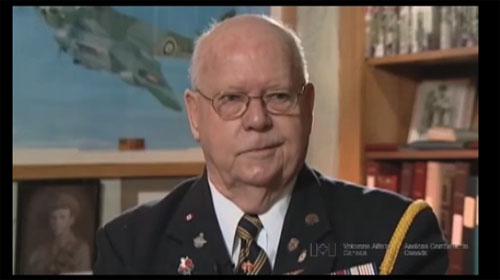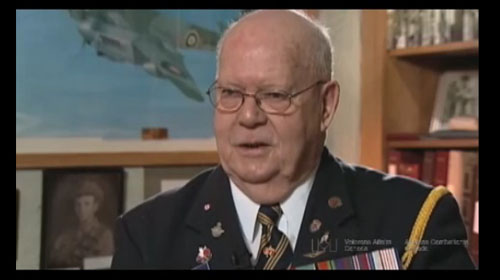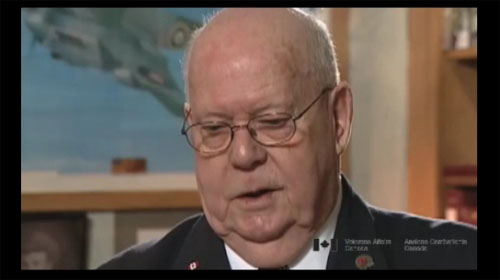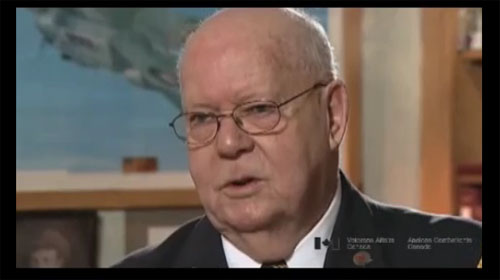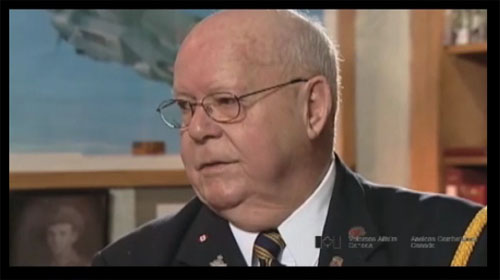Well there was 150 of us, they were young navigators and young
aircrew. And from Halifax we were called down to the docks.
They said, “Okay line up into three flights.” So it turned out
there was 51 in one flight and the rest were in the other next
two. So they took the first 51 and put them on this big ship and
the rest of us, there was 99 of us on the little... it was a
little, what they called a banana boat. Biano (sp) was the
name of it. And we, it was 5 o’clock in the morning we started
out, we ended up marching down to the docks. By the time we
got onto the ship, because there was a twelve foot swell
in the harbour so they had to bring a tender in. They couldn’t
bring the ship in. We all climb on this and then go out with the
tender. As soon as the ladder got even with your little craft,
with your kitbag you jumped on to the ladder and walked up
the ship. So it was about noon, we were hungry so down to the
dining room we headed in this little boat. There were beautiful
napkins and white table clothes and silverware and everything.
Gee this is just great! And there was, the reason they called it
a banana boat was it traded in the Carribean between the islands
and they collected bananas and so on and so that’s why it was
called a banana boat. Anyway, it was put into the convoy service,
you see. So we ordered our... would you believe we had a waiter
that came around and took our order? We ordered soup and
everything, soup. We’re down in the ship and had their soup.
And all of a sudden it was just going up and up. I was seasick
before we even set course... set sail because I was up and
over the side with my soup. I was never seasick after that,
fortunately but it was fourteen days. And anyway, the other...
we were in line astern and the big ship with the 51 fellas on was
behind us. Fourteen days in the convoy. We’d wake up in the
mornings and here we’d be in the middle of the convoy.
Our captain would take the little ship and put it up in the
middle. This is where training from reading signals, what they
call the Aldous Lamp, was the signals by light flashing.
The commodore of the convoy was saying, “Get back in your place,
you cunning old fox.” So back the ship would go and be in line
again. But if he hadn’t done that, we’d have been sunk too. We
woke up one morning and the boat with our friends on it was gone
I just looked in the book there this morning before I came and
one of the young fellows in that boat was from Moosejaw. He lived
a block from me at home and he was lost on that ship. I had a
roommate on this boat and he never made it. He’d ordered his
breakfast and by the time it came he was back in bed.
Never had a bite to eat for the full two weeks. He was a sick boy
when he got to England and turns out, he never got home.
He was on the list of the boys that were lost, too. So this is
how lucky I’ve been, just everything worked out fine. But we had
fourteen days of uncomfort and yet in lots of ways it was really
comfortable because we had all these amenities in a way.
But the risks were there and we got away with it.



